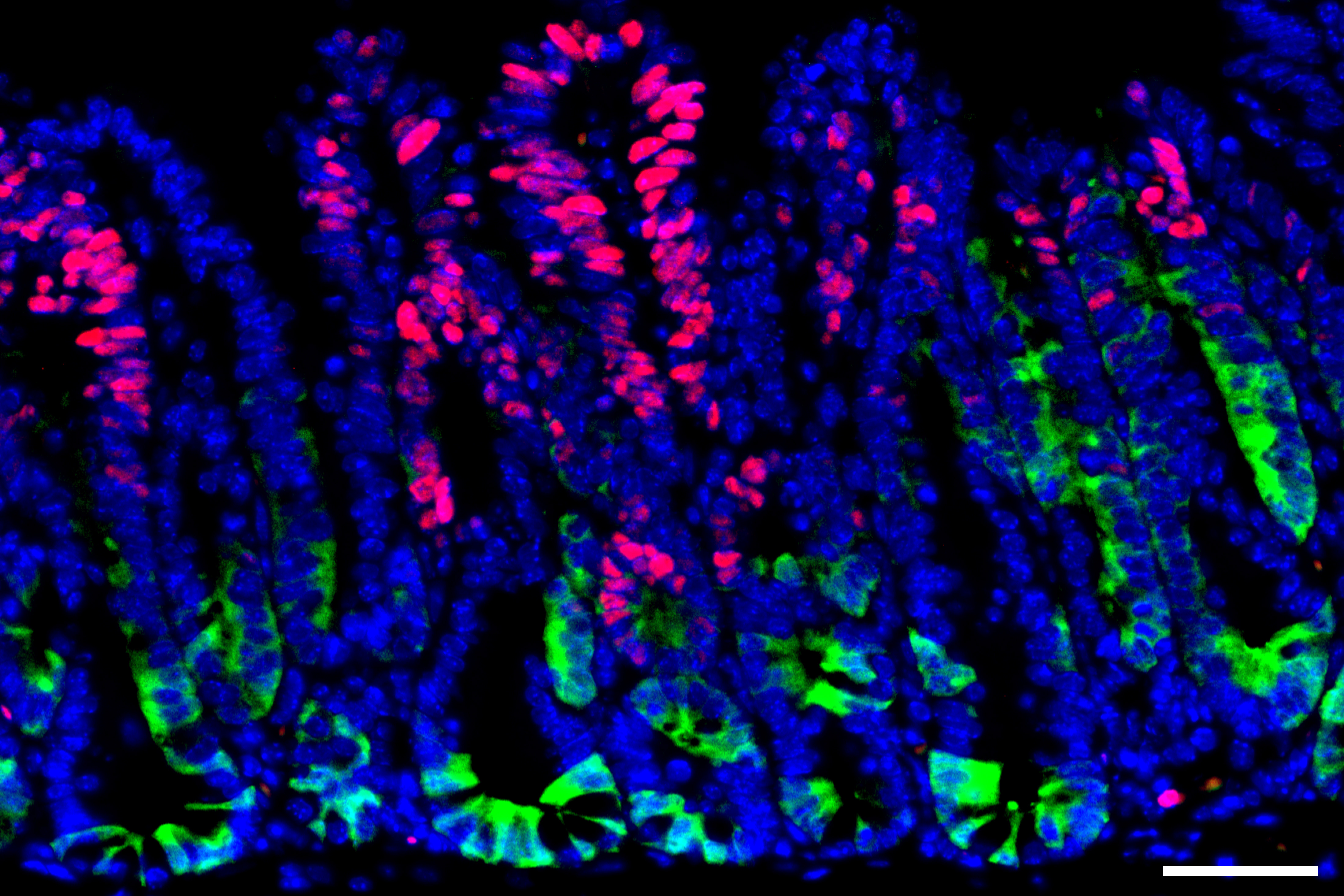- Goto N, Westcott PMK, Goto S, Imada S, Taylor MS, Eng G, Braverman J, Deshpande V, Jacks T, Agudo J, Yilmaz ÖH. SOX17 enables immune evasion of early colorectal adenomas and cancers. Nature. 2024 Feb 28. doi: 10.1038/s41586-024-07135-3. Epub ahead of print. PMID: 38418875.
A look at tumour cells hidden from the immune system
Researchers found that in the early stages of colon cancer development, cells that activate the SOX17 gene can become essentially invisible to the immune system.
The SOX17 gene and tumour development
The SOX17 gene encodes a member of the SOX (SRY-related HMG-box) family of transcription factors involved in the regulation of embryonic development and cell fate determination. The encoded protein can act as a transcriptional regulator after forming a protein complex with other proteins.
According to the authors of a recent study, the activation of SOX17 in the early stages of colorectal cancer formation is a critical step that protects precancerous cells from the immune system. If SOX17 could be inhibited, one might be able to better prevent colon cancer, particularly in patients prone to developing colon polyps.
Immune "evasion"
Colon cancer usually arises in intestinal stem cells, whose job is to continuously regenerate the lining of the intestine. Over the course of their long lives, these cells can accumulate cancerous mutations that lead to the formation of polyps, a type of pre-malignant growth that can eventually become metastatic colon cancer.
To better understand how these pre-cancerous growths evade the immune system, the researchers used a technique previously developed to grow mini colon tumours in the laboratory and then implant them in mice. In this case, the researchers engineered the tumours so that they expressed mutated versions of the Kras, p53 and APC genes often found in human colon tumours.
Once these tumours were implanted in the mice, the researchers observed a dramatic increase in the expression of SOX17 in the tumours. This gene encodes a transcription factor that is normally only active during embryonic development, when it helps control gut development and blood vessel formation.
The researchers' experiments revealed that when SOX17 is activated in cancer cells, it helps the cells create an immunosuppressive environment. Among its effects, SOX17 prevents cells from synthesising the receptor that normally detects gamma interferon. Without these receptors for interferon gamma, cancerous and precancerous cells can simply ignore messages from the immune system that would normally direct them towards programmed cell death.
Without gamma-interferon signalling, cancer cells also reduce the production of molecules called MHC proteins, which are responsible for presenting tumour antigens to the immune system. The cells' insensitivity to gamma interferon also prevents them from producing immune molecules called chemokines, which normally recruit T lymphocytes that would help destroy cancer cells.
In these intestinal cancer cells, the Sox17 protein is labelled red. The MIT researchers found that when cancer cells activate the Sox17 gene, it helps them evade immune detection, in part by deactivating the expression of a protein called Lgr-5, labelled green. (Image credit: MIT)
Targeting SOX17
When researchers generated colon tumour organoids with suppressed SOX17 and implanted them into mice, the immune system was able to attack these tumours much more effectively. This suggests that preventing cancer cells from deactivating SOX17 could offer a way to treat colon cancer in its early stages.
As part of their study, the researchers also analysed gene expression data from colon cancer patients and found that SOX17 tended to be highly expressed in early-stage colon tumours, but decreased as the tumours became more invasive and metastatic.
Transcription factors such as SOX17 are considered difficult to target with drugs, partly because of their disorganised structure, so the researchers now plan to identify other proteins with which SOX17 interacts, in the hope that it will be easier to block some of these interactions. The researchers also intend to study what triggers SOX17 activation in precancerous cells.
